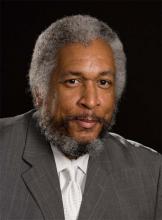The commissioner of Georgia’s Medicaid agency has written a sharply worded defense of nursing home payments now deemed improper by the federal government.
A federal ruling saying Georgia should return more than $100 million in nursing home payments “is factually and legally incorrect,’’ Clyde Reese, commissioner of the Department of Community Health, wrote in a February letter to a Centers for Medicare and Medicaid Services (CMS) official in Atlanta.
“Refunding payments previously approved by CMS would be inequitable and would result in unjust enrichment to the federal government,” Reese said. It would probably also lead to the closure of the more than 30 nursing homes involved, he added.
In December, federal officials said Georgia Medicaid should return more than $100 million in payments made to a group of nursing homes. The feds said these payments were not permitted under the program’s regulations.
The payments were made in fiscal years 2010 and 2011. But CMS also asked Georgia to return any similarly inappropriate payments for more recent fiscal years as well.
In the letter and draft report to Georgia about the nursing home problem, regional CMS officials told the state Medicaid agency to “cease and desist this unallowable funding mechanism immediately.’’
Georgia has halted the financing mechanism cited in the report. But the Reese letter indicates that the state is going to fight the feds on the issue of returning any money.
The nursing homes cited in the federal report appear to be part of Community Health Services, a Macon-based company. An executive with that company had no immediate comment Wednesday.
The Department of Community Health said it has discussed the payment matter with the company.
The nursing home payments in question involve a complex funding formula called “upper payment limit’’ (UPL).
States have developed these UPL programs to draw down extra federal matching dollars.
Under UPL, the state is able to get a higher reimbursement rate – at the Medicare level – for delivering Medicaid services. Hospitals, nursing homes or physicians can put up the matching amount and get more money in return.
CMS said that in this case, the proper rules were not followed. It said the state reported that 35 Georgia nursing homes were owned by local development authorities and were the source of “intergovernmental transfers’’ to get UPL dollars. But the CMS report to state officials contended that “these nursing facilities are actually privately owned” — not owned by a public agency as required.
The authorities were used as “pass-throughs’’ for the funding transfers, the federal report said.
Basic disagreements
Reese, in his response letter, said the development authorities are indeed public agencies under Georgia law — with a status similar to hospital authorities — and they also have access to local tax revenue.
Because development authorities are public agencies “that have the power to receive, own and administer property, any funds that come under the control of the development authority are de facto ‘public funds,’ ” Reese wrote.
Reese also noted that CMS has approved the agency’s state share of the UPL funding every year since the inception of the program.
The feds and Georgia disagree not only about the propriety of the payments, but even about the number of nursing homes involved. CMS said it’s 35, while Reese’s letter puts the number at 34.
Jeremy Arieh, a spokesman for the Department of Community Health, said Wednesday that the agency is awaiting a response from CMS to Reese’s letter.
CMS declined to comment Wednesday on the nursing home payment dispute.
The UPL money is not the only Medicaid funding that has led to a conflict between Georgia and federal health officials.
A federal judge ruled in February that Georgia should receive a refund of $90 million of Medicaid funds it mistakenly returned to the federal government, even though the state made its claim for the money after the two-year window to do so had expired.
The nursing home industry in Georgia recently underwent an internal shakeup. The Georgia Health Care Association announced that Jon Howell is stepping down as CEO of the organization, which represents nursing homes.
The wording of that announcement indicated some dissension within GHCA, without specifying what the disagreement was about. A spokesman for the group declined comment this week on the nursing home payment issue, and on whether it was a factor in Howell’s departure.


